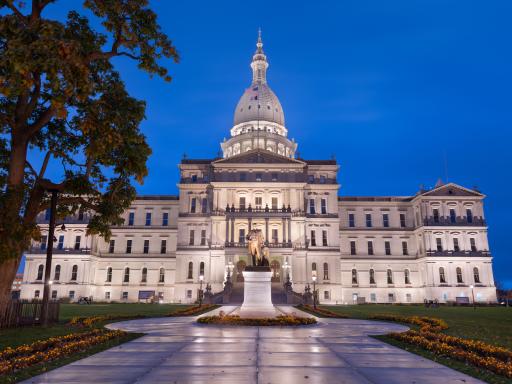The first payments from the national opioid settlement are set to begin this week. Recently, CMF members joined the Governor’s Office of Foundation Liaison (OFL) for a virtual conversation with Michigan’s Department of Health and Human Services (MDHHS) and the Department of Attorney General to learn more about the state’s plan to distribute millions from the global opioid settlement to local communities.
As CMF reported, Michigan will receive nearly $800 million from three opioid distributors and an opioid manufacturer as part of a $26 billion nationwide settlement for their role in the opioid crisis.
Michigan’s Assistant Attorney General, Matt Walker, shared more details on the Opioid Settlement, what distributors will pay and the legislative efforts to ensure the state receives settlement dollars and how the state may use the funding.
MDHHS shared a data overview of the opioid crisis in the state. Despite a decrease in overdose deaths in 2018 and 2019, Michigan has seen an increase in the last two years, and the data revealed the growing racial disparities in overdose deaths.
Overdose deaths by race and ethnicity according to MDHHS from January 2021 to December 2021:
- Black Michiganders, 50.1 deaths per 100,000.
- White Michiganders, 24.4 deaths per 100,000.
- Hispanic Michiganders, 28 deaths per 100,000.
- American Indian or Alaska Native Michiganders, 17.2 deaths per 100,000.
- Asian or Pacific Islander Michiganders, 4.9 deaths per 100,000.
During the briefing, MDHHS highlighted the state’s opioid strategy and its opioid settlement proposed efforts, as well as recommendations for philanthropic partnerships, including:
- Efforts to reduce disparities.
- Technical support and infrastructure building for local governments to improve access to resources and best practices.
- Additional recovery supports.
- Programming for children and adolescents who have lost family due to opioid overdose.
MDHHS further unpacked how philanthropy can partner with state government to address the opioid crisis, including making connections to those that have evidence-based approaches, helping to support populations that are the most vulnerable and collaborating to advance primary prevention efforts.
Want more?
CMF members can access the on-demand recording in CMF’s Knowledge Center as a member benefit. Watch the full briefing.
Learn more about Michigan’s Opioid Strategy.
Explore CMF’s Health Funders Affinity Group which connects grantmakers throughout the state who fund programs and projects with a health focus. We invite you to join the Health Funders Online Community, designed to seamlessly connect you in peer-to-peer conversations.
